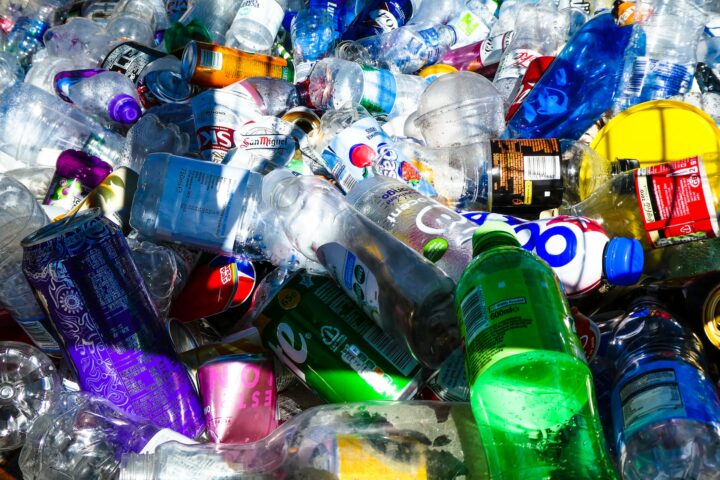In an era where environmental conservation is not just a necessity but a responsibility, the UK is seeing a surge in innovative recycling business startups. These ventures are not only crucial in managing waste and reducing the environmental footprint but also present lucrative opportunities for eco-conscious entrepreneurs. This article explores various recycling business ideas, their investment requirements in the UK market, and the overarching benefits they bring to both the economy and the environment. The UK, like many other countries, faces significant waste management challenges, particularly in handling electronic waste, plastics, organics, textiles, and paper. This has led to a growing interest in recycling businesses, driven by environmental concerns, government incentives, and a burgeoning market for recycled products.
E-waste Recycling Business
- Investment: Approximately £100,000 to £150,000
- Concept: Set up collection centres for old electronic devices, which often contain hazardous materials like lead and mercury. The business involves dismantling these devices to salvage valuable components and ensure safe disposal of harmful parts. Entrepreneurs must navigate waste management regulations, secure necessary permits, and establish partnerships with local businesses and manufacturers to maintain a steady supply of e-waste.
Organic Waste Composting Business:
- Investment: Roughly £50,000 to £80,000
- Overview: Address the issue of methane production from organic waste in landfills by converting food scraps and yard trimmings into compost. This business model requires identifying sources of organic waste, such as restaurants and households, and setting up composting facilities. The resulting compost can be sold to farmers and gardening centres, offering a sustainable alternative to chemical fertilizers.
Plastic Recycling Business:
- Investment: About £150,000 to £200,000
- Details: Establish collection points for plastic waste from various sources including households and businesses. The plastic is then sorted, cleaned, and processed through methods like mechanical recycling or advanced techniques like pyrolysis. Recycled plastics can be transformed into materials like pellets or fibres, catering to manufacturers who use recycled plastics.
Textile Recycling Business:
- Investment: Estimated £80,000 to £120,000
- Function: Focus on repurposing old clothing and fabrics to reduce textile waste. Collect used clothing from donation centres or partner with retailers for unsold items. Sort textiles by condition and type for efficient recycling. Recycled textiles can then be transformed into new products or raw materials for various industries.
Paper Recycling Business:
- Investment: Approximately £120,000 to £180,000
- Operation: Set up collection centres for used paper from offices and schools. The collected paper is processed to remove impurities and then recycled into different paper products. This business model also involves educating consumers about the benefits of recycled paper and partnering with printing companies.
Mobile Recycling Units:
- Investment: Around £70,000 to £100,000
- Concept: Deploy mobile recycling units to areas with limited access to recycling services. These units can be customized for different materials and can serve as educational tools to raise awareness about recycling. Entrepreneurs should collaborate with local authorities to maximize impact.
FAQs – Legal Requirements and Financing:
- Services: Assists with legal registration of recycling businesses, offering services like entity selection, documentation, tax registration, and compliance checks.
- Government Grants and Loans: Entrepreneurs can explore various financing options like environmental grants, green business grants, and small business loans, tailored to support eco-friendly practices and innovative recycling technologies.
These recycling business ideas offer a blend of environmental stewardship and entrepreneurial opportunity, especially pertinent in today’s eco-conscious market.
Trends in Waste Generation and Recycling Rates in the UK
The United Kingdom has seen significant shifts in waste generation and recycling practices in recent years. As environmental awareness grows and government policies evolve, understanding these trends is crucial for shaping future waste management strategies. This article delves into the current state of waste generation in the UK, examines the types of waste predominantly produced, and evaluates the country’s recycling rates, using key statistics and comparisons with previous years to offer a comprehensive view.
Current State of Waste Generation
The UK produces a substantial amount of waste each year, a byproduct of its robust economy and sizable population. Recent data shows that the UK generates millions of tonnes of waste annually, encompassing a wide range of materials, including household waste, commercial and industrial waste, and construction and demolition debris.
Types of Waste
- Household Waste: Includes general household rubbish, garden waste, and bulky items like furniture.
- Commercial and Industrial Waste: Generated by businesses and industries, including packaging, manufacturing scraps, and electronic waste.
- Construction and Demolition Waste: Involves materials like concrete, wood, metals, and plastics from construction sites.
Recycling rates in the UK have seen an upward trend over the past decade, with concerted efforts from the government, local councils, and the public. However, the rate of increase has shown signs of slowing down in recent years.
Key Statistics
- Percentage of Waste Recycled: As of the latest figures, the UK recycles a significant percentage of its waste, though it varies across different regions and types of waste.
- Comparison with Previous Years: There has been a gradual increase in recycling rates from previous years, although the pace of growth has fluctuated.
The UK government has set ambitious targets for recycling in the coming years. These goals are part of broader initiatives to reduce waste, minimize landfill usage, and promote a circular economy.
Several factors have influenced the UK’s recycling trends:
- Public Awareness and Education: Increased awareness about environmental issues has led to more people participating in recycling programs.
- Government Policies and Incentives: Policies such as waste reduction targets, recycling incentives, and penalties for non-compliance have played a significant role.
- Technological Advancements: Innovations in recycling technology have made the process more efficient and accessible.
- Economic Factors: Market demand for recycled materials and the economic viability of recycling processes also impact recycling rates.
Despite progress, the UK faces challenges in further improving recycling rates. These include issues like contamination of recyclables, varying capabilities across local councils, and the need for improved infrastructure. However, there are also opportunities, such as the potential for new recycling technologies and the increasing market for recycled materials. United Kingdom has seen a significant shift in its approach to waste management and recycling, largely influenced by various government policies and regulations. This article examines how these policies are shaping the recycling industry, focusing on the Waste Strategy Framework, plastic packaging taxes, and incentives for businesses adopting circular economy models. Additionally, it looks at statistical data to gauge the effectiveness of these policies in enhancing recycling rates.


